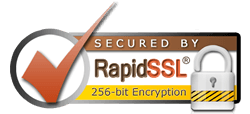Money for Any Reason You May Need!
A quick and easy way to get the loan you need today!
Blog
By Brenda
The Default Consequences of Unsecured Loans
Defaulting on a loan indicates that you did not meet the obligations that were set in your terms of repayment. This means one of several things, you could have missed a payment, been late on making your payment, or you could have avoided making a payment altogether. Whatever the reason, a defaulted loan is going to cause severe damage to your credit score and leave you very vulnerable to a multitude of collection procedures. The consequences for defaulting on an unsecured loan are even more severe, as collection agencies for credit cards, student loans, or personal loans can be much more aggressive then that of secured loans.
Unsecured Loans
In the case of defaulting on an unsecured loan there is no property (collateral) that can be taken from you. Although this can be a good thing, it also means that the consequences for defaulting can actually be much more severe. In most cases, you will have a grace period of between fifteen and thirty days to pay back your credit card or other personal loan bill, however in some situations even missing a payment for one day can cost you dearly.
Late Fees and Rising Interest Rates
After sixty days of not paying an unsecured loan, you will be subject to hefty late fees as well as a potential interest rate increase. If your bill remains unpaid after ninety days you will most likely get the attention of your lender’s collection agency, which will then officially move your account into default status. If your debt goes unpaid for more than 180 days (sometimes as little as 120 days), your debt will most likely be written off, which means that your lender will count the debt as a loss to their company and they will delete your account from its books. This is not good news, as you will cause damage to your credit score and you will still owe money, however it won’t be to a bank or your original lending company but to a collection agency or debt collector who will receive a portion of the money that they will attempt to collect from you.
Debt Collectors
Once your unsecured loan debt has been written off, you will be subject to the pursuit of a collection agency who has financial profit to gain in forcing you to pay, as well as a large amount of experience in knowing how to pressure defaulters into meeting obligations. It is true that the Fair Debt Collection Practices Act (FDCPA) will protect you to some extent, as it will prevent a debt collector from using certain deceptive and even abusive practices to reclaim a loan, however you cannot get away from the aggravation as well as the annoyance that a debt collector can bring to you and your family.
Legal Woes
If you still do not pay off an unsecured loan debt, your charge-off will eventually be turned over to a lawyer. A collection attorney can take you to court once they have issued their final letter, which will call on you to repay your loan debt. If this debt is deemed valid then the court may issue a judgment, which will order you to pay your debt as well as very expensive legal fees. Keep in mind that once your unsecured loan debt is taken to court, your loan default will be put on public record. A court judgment will also allow creditors to place a lien on your home, which will mean that if you ever decide to sell it you will be forced into covering some if not all of the unsecured loans debt.
Related Posts


